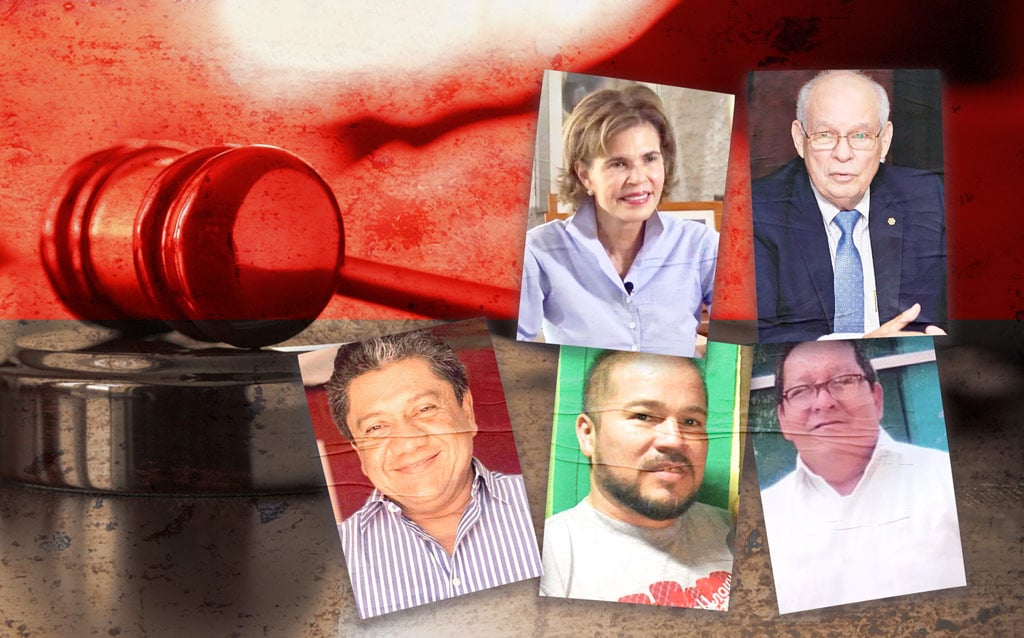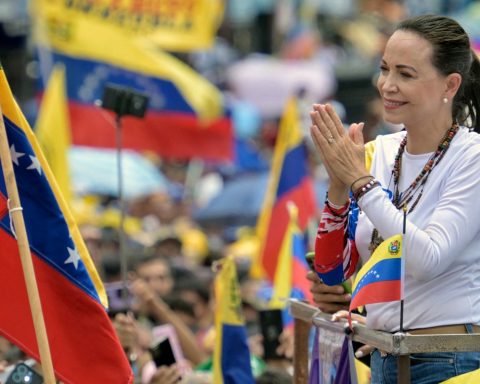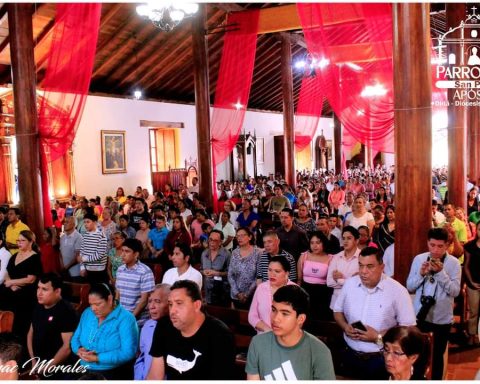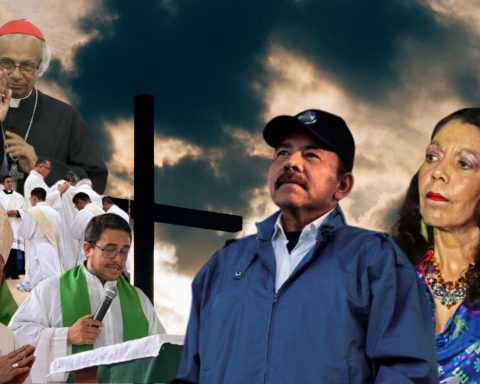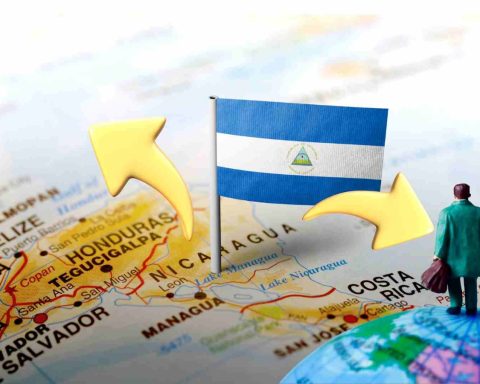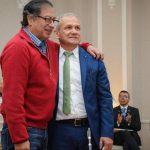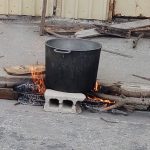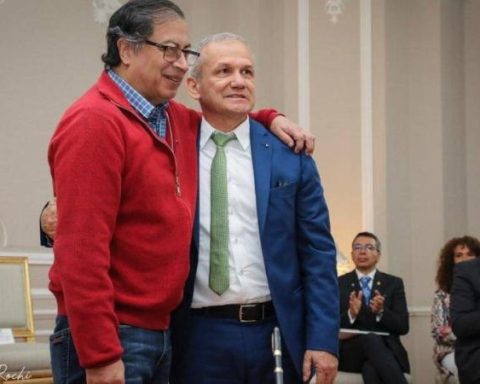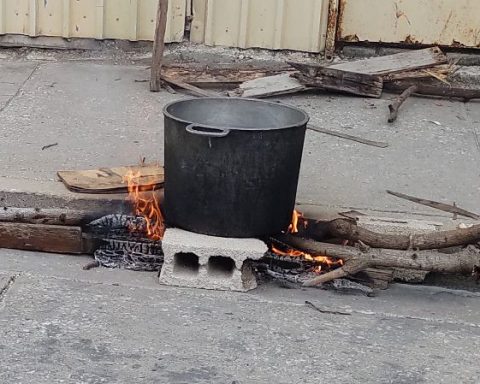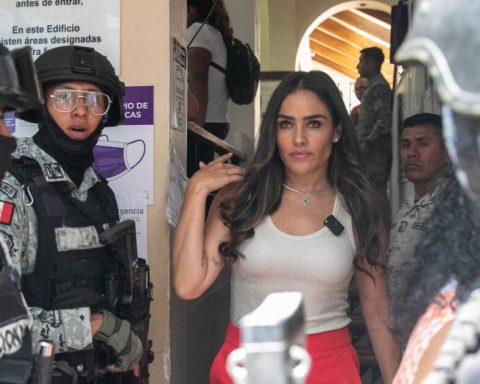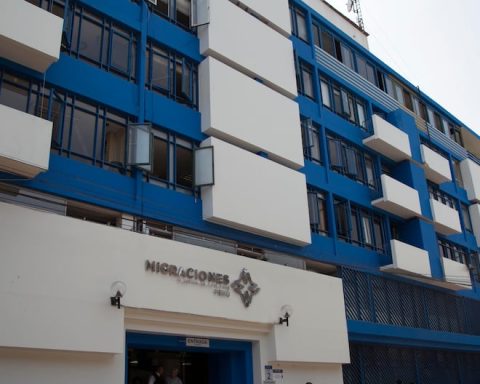Judge Luden Martín Quiroz, of the Ninth Criminal District Court, begins this Thursday, March 3, in the Chipote prison, the process against former presidential candidate Cristiana Chamorro Barrios, her brother Pedro Joaquín, two former officials of the extinct Violeta Barrios de Chamorro Foundation (FVBCh) and a driver.
Cristiana Chamorro, Walter Gómez and Marcos Fletes are charged with the alleged crimes of money laundering, abusive management, ideological falsehood, appropriation and improper retention; former deputy Pedro Joaquín Chamorro, former vice president of the FVBCh, is accused of alleged abusive management, ideological falsehood, appropriation and improper retention; and the driver Pedro Vásquez is charged with the crime of necessary collaborator for money laundering.
The defense lawyers assured that the trial, which will take place behind closed doors, could last two weeks, due to the documentation accumulated by the authorities for each of the five defendants, and due to the amount of evidence that the defense plans to present.
In addition to the police witnesses that the Prosecutor’s Office usually summons, as in the case of other political prisoners, the judicial hearing has summoned journalists and representatives of media beneficiaries of donations from the FVBCh as supposed “witnesses.”
The decision to initiate this political trial occurs two months after the deadline for sentencing expired, a serious procedural situation that adds to a host of irregularities in the investigation used by the regime to inhibit the political aspirations of the former president of the Foundation and intimidate at least 60 journalists who were summoned last year to the Prosecutor’s Office.
Yader Morazán, an expert in the administration of justice, affirmed that the “judicial stopwatch” began to run from June 3, 2021, when the hearing against Chamorro Barrios was held, on whom the Police imposed the house arrest regime.
The procedural laws of the country establish a maximum period of six months from the initial hearing. That happens when it comes to a “complex processing” investigation, which doubles the procedural deadlines. However, with the investigation of the FVBCh this Thursday, eight months have passed since the first hearing.
Starting with the hearing last June, a process began characterized by judicial secrecy, intimidation, lack of guarantees for the defendants, secret hearings in the El Chipote prison, and because Ortega anticipated a conviction on several occasions, insulting the political prisoners qualifying them last November as “sons of bitches of imperialism”.
“When the process dies, everything that it generates dies, such as the precautionary measure of preventive detention for all those involved in the same case,” Morazán explained.
February: Month of sentencing of political prisoners
The reactivation of the FVBCh case comes a month after the start of sentencing political prisoners in Nicaragua. A machinery under the control of the ruling party, made up of 15 officials, including judges, prosecutors and policehas imposed sentences on more than twenty political prisoners so far, almost all convicted of committing the alleged crime of “conspiracy to undermine national integrity” or for the alleged “spreading of false news”
The former president of the FVBCh was arrested on June 2 of last year. She was accused of the alleged crimes of abusive management, ideological falsehood in real competition with “money laundering”, after a State report indicated that the Foundation supposedly transferred funds for the strengthening of media between 2017-2020 to people and organizations that they seek “the destabilization of the smooth running of the country’s economic and social development.”
The main point of the accusation is that the FVBCh allegedly received 150 million cordobas from donors between 2015 and 2019, but they had 190 million cordobas in the banking system.
The main donor of the FVBCh, the Agency for International Development (AID) of the United States, denied since May 27, 2021 that they had found “evidence of laundering”, as stated by the regime. Among the beneficiaries for the alleged destabilization of the Nicaraguan Executive, the Prosecutor’s Office listed 13 independent media outlets, four non-governmental organizations and seven journalists.
The process allowed the pre-candidate Chamorro Barrios and six other presidential candidates to be inhibited and, in this way, a fourth consecutive term was secured, which earned him international rejection of the farce and illegitimacy.
Another of the defendants is Cristiana’s brother, Pedro Joaquín Chamorro Barrios, arrested by the Police on June 26 last for commit alleged “acts undermining the sovereignty of the country”, after giving an interview in which he had also stated his presidential aspirations. Later he was accused of the alleged crimes of “abusive management, appropriation and improper retention” in relation to the FVBCh case.
The ordeal of those accused in the FVBCh trial began in May of last year. The first captured were on the 29th of that month, Walter Gómez and Marcos Fletes, the former financier and former accountant of the FVBCh, but the driver of Cristiana Chamorro Barrios, Pedro Vásquez Cotedano, is also detained.
Director of CONFIDENCIAL accused in absentia
For the same reason, the director of CONFIDENTIALCarlos Fernando Chamorro Barrios for the alleged crimes of abusive management, improper appropriation and retention, and also money laundering, despite the fact that neither Chamorro nor CONFIDENCIAL have any legal, economic or institutional link with the FVBCh.
The journalist found in exilefor the second time since June 2021, and has been the victim of the confiscation of the outlet’s offices since 2018, the second police assault against a temporary office of CONFIDENCIAL on May 20, 2021, and the search of his house on May 21. June of last year.
The former workers of the FVBCh are also accused in absentia: Ana Elisa Martínez, Lourdes Arróliga, Guillermo Medrano and Emma Marina López.
“That file has to be separated; for uncaptured people the timer does not run. The other way in which the process does not run is when you did not arrive at the second hearing and then there is a rebellion. They are the only two ways in which judges can upload a file in statistical terms,” explained lawyer Yader Morazán.
The lawyer explained that the maximum expiration term in the process to issue a sentence is one of the ten causes for the “extinction of the criminal action” and recalled that another is the prescription, the same one that was alleged to save Daniel Ortega from facing justice in December 2001 when he was accused of rape by his stepdaughter Zoilamérica Narváez.
